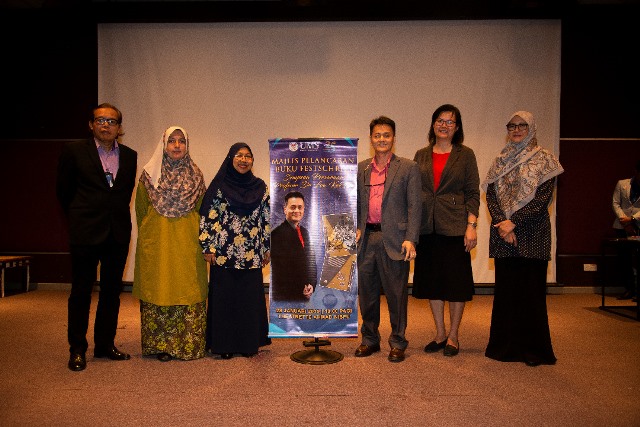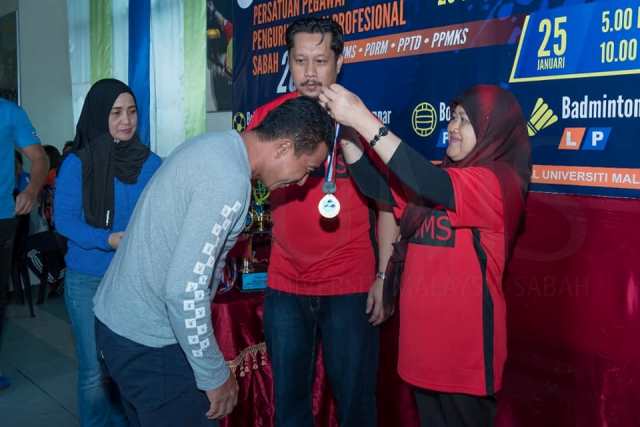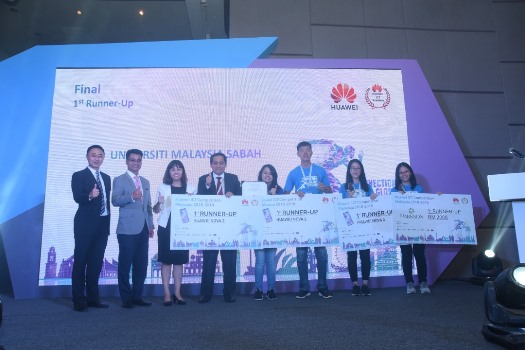 JUMAAT, 01 FEBRUARI - Sekumpulan pelajar Ekonomi Kewangan, Fakulti Perniagaan, Ekonomi dan Perakaunan, Universiti Malaysia Sabah (UMS) mengadakan program lawatan sambil belajar ke Hong Kong dan Macau, baru-baru ini.
JUMAAT, 01 FEBRUARI - Sekumpulan pelajar Ekonomi Kewangan, Fakulti Perniagaan, Ekonomi dan Perakaunan, Universiti Malaysia Sabah (UMS) mengadakan program lawatan sambil belajar ke Hong Kong dan Macau, baru-baru ini.
Pengarah program, Sal Farhannishah Abd Rahman berkata, program yang turut dikenali sebagai Global Outreach Program itu antara lain bertujuan memberi pendedahan kepada pelajar tentang dunia luar serta perbezaan budaya dan ekonomi antara negara.
“Dalam program ini, para pelajar telah berpeluang melawat Universiti of Hong Kong, Hong Kong Monetary Authority (HKMA) Currency Museum dan Universiti of Macau.
“Kami juga dapat melihat sendiri kemudahan universiti, suasana kampus serta berinteraksi dengan pelajar di universiti-universiti yang dilawati,” ujarnya dalam satu kenyataan hari ini.
Menurut Farhannishah, pelbagai pengetahuan telah ditimba sepanjang empat hari tiga malam program itu berlangsung.
Beliau berkata, antara yang menarik termasuklah kunjungan ke HKMA Currency Museum yang memberi kefahaman mendalam tentang sejarah dan fungsi HKMA sebagai autoriti kewangan kepada Hong Kong yang juga merupakan antara pusat kewangan antarabangsa terpenting di dunia.
“Program ini telah memberi pelbagai manfaat kerana mendedahkan kami kepada suasana kehidupan, pembelajaran dan ekonomi luar negara,” jelasnya.
Dalam pada itu, Pensyarah Kanan Program Ekonomi Kewangan FPEP UMS, Dr. Rafiq Idris berkata, program tersebut memberi pendedahan antarabangsa kepada para pelajar di samping membina keyakinan dan keupayaan dalam teknik berkomunikasi.
“Program sebegini juga mampu membuka mata pelajar tentang budaya asing, kerancakan ekonomi di negara luar dan melihat bagaimana sektor-sektor tertentu seperti pendidikan dan pelancongan menyumbang kepada pendapatan sesebuah negara,” jelas beliau yang turut mengiringi rombongan pelajar sepanjang lawatan itu berlangsung.



 RABU, 30 JANUARI – Fakulti Kemanusiaan, Seni dan Warisan (FKSW) Universiti Malaysia Sabah (UMS) telah melancarkan Buku Festschrift bertajuk Borneo Dari Kepelbagaian Perspektif dalam satu majlis di Theatrette Ahmad Nisfu, FKSW, baru-baru ini.
RABU, 30 JANUARI – Fakulti Kemanusiaan, Seni dan Warisan (FKSW) Universiti Malaysia Sabah (UMS) telah melancarkan Buku Festschrift bertajuk Borneo Dari Kepelbagaian Perspektif dalam satu majlis di Theatrette Ahmad Nisfu, FKSW, baru-baru ini. SELASA, 29 JANUARI – Pusat Islam Universiti Malaysia Sabah (PIUMS) dengan kerjasama Tabung Haji Travel Kota Kinabalu menganjurkan Kursus Umrah 2019, di Masjid UMS, baru-baru ini.
SELASA, 29 JANUARI – Pusat Islam Universiti Malaysia Sabah (PIUMS) dengan kerjasama Tabung Haji Travel Kota Kinabalu menganjurkan Kursus Umrah 2019, di Masjid UMS, baru-baru ini. SELASA, 29 JANUARI - Persatuan Pegawai Pengurusan dan Profesional Universiti Malaysia Sabah (PPUMS) mengukuhkan jalinan silaturahim bersama pegawai pengurusan dan profesional daripada jabatan dan agensi kerajaan di Negeri Sabah melalui penganjuran kejohanan sukan, baru-baru ini.
SELASA, 29 JANUARI - Persatuan Pegawai Pengurusan dan Profesional Universiti Malaysia Sabah (PPUMS) mengukuhkan jalinan silaturahim bersama pegawai pengurusan dan profesional daripada jabatan dan agensi kerajaan di Negeri Sabah melalui penganjuran kejohanan sukan, baru-baru ini. SELASA, 29 JANUARI - Pasukan Universiti Malaysia Sabah (UMS) meraih tempat kedua pada Pertandingan Akhir Huawei ICT Malaysia 2018-2019 yang berlangsung di Kuala Lumpur baru-baru ini.
SELASA, 29 JANUARI - Pasukan Universiti Malaysia Sabah (UMS) meraih tempat kedua pada Pertandingan Akhir Huawei ICT Malaysia 2018-2019 yang berlangsung di Kuala Lumpur baru-baru ini.